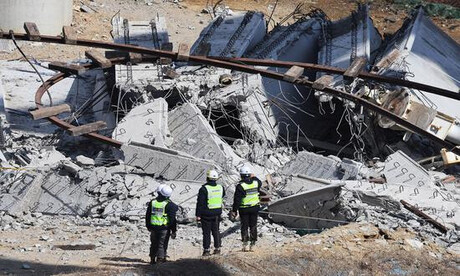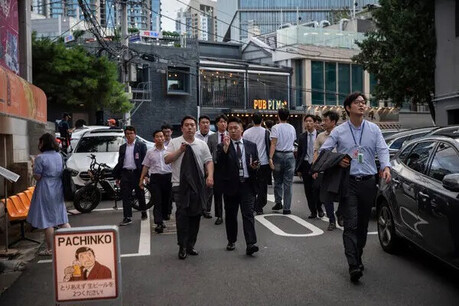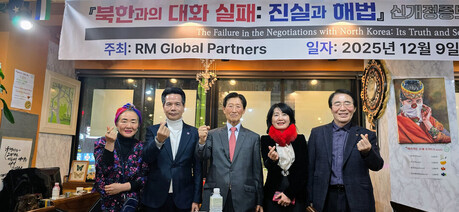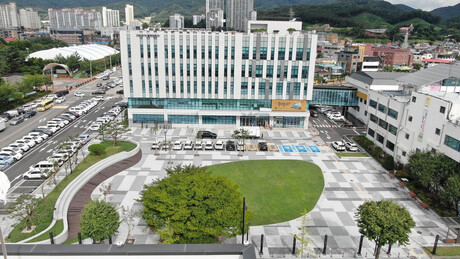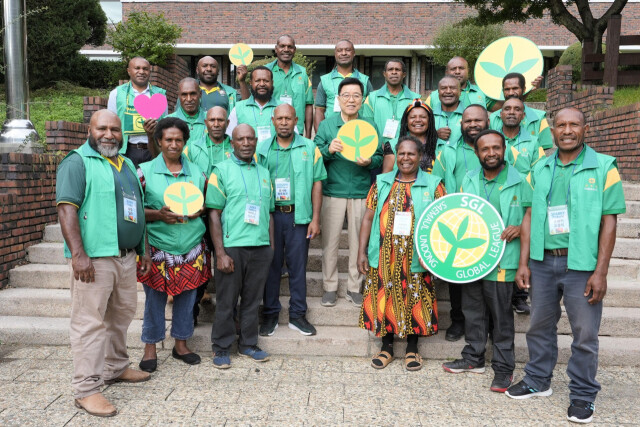
April 17th marked the successful conclusion of the "Papua New Guinea Invitation Saemaul Education Program" hosted by the Saemaul Undong Central Association (SUCA). The completion ceremony, held at the association's headquarters, saw 22 participants from Papua New Guinea receive their certificates of completion. This initiative underscores SUCA's commitment to promoting the sustainable expansion of the Saemaul Undong (New Village Movement) across the globe.
The ceremony was graced by the presence of key figures, including Mr. Kim Seong-ho, Secretary-General of the Saemaul Undong Central Association, and Mr. Jung Je-moon, Secretary of the Saemaul Development and Cooperation Division at the Ministry of the Interior and Safety. Both officials extended their congratulations and encouragement to the graduating trainees.
Over a comprehensive 10-day program, from their enrollment on April 8th, the Papua New Guinean participants engaged in a diverse curriculum encompassing the theoretical underpinnings and practical strategies of the Saemaul Undong. The training also delved into successful implementation case studies from various nations and culminated in the development of personalized action plans tailored to their local contexts.
Given that Papua New Guinea is in its second year of implementing Saemaul Undong pilot projects, a significant emphasis was placed on establishing tangible foundations for income generation within the communities. The curriculum strategically combined theoretical lessons with immersive field visits, allowing the trainees to witness firsthand the practical application of Saemaul principles and to explore effective localization strategies for their home country.
Mr. Jung Je-moon, reflecting on his visit to the Saemaul pilot villages in Papua New Guinea the previous year, remarked, "I could directly sense the strong commitment to the Saemaul Undong. I hope that you will continue your activities based on the experiences gained from this training, and the Korean government will also provide continuous support."
Mr. Kim Seong-ho echoed this sentiment, emphasizing the core values of the movement. "If you practice together with the residents based on the fundamental spirit of the Saemaul Undong, your efforts will become the cornerstone for national development beyond your villages," he stated, urging the graduates to embrace their roles as Saemaul leaders with a sense of mission.
The Saemaul Undong Central Association has a long-standing history of international outreach in education. Since 1973, the association has provided Saemaul education to over 67,000 individuals from 150 countries. In 2024 alone, SUCA plans to invite approximately 500 people from 45 nations to participate in its global Saemaul Undong education programs, demonstrating its unwavering dedication to sharing Korea's rural development model with the world.
Background on the Saemaul Undong:
The Saemaul Undong, launched in the 1970s, was a nationwide community-driven initiative that played a pivotal role in South Korea's remarkable transformation from a war-torn, impoverished nation to an economic powerhouse. The movement's core principles, often translated as diligence, self-help, and cooperation, empowered rural communities to take ownership of their development.
Key elements of the Saemaul Undong included:
Grassroots Participation: Encouraging active involvement of villagers in identifying their needs and implementing solutions.
Government Support: Providing initial resources and guidance to facilitate community-led projects.
Infrastructure Development: Focusing on improving basic living conditions through projects like road construction, irrigation systems, and housing improvements.
Income Generation: Promoting agricultural modernization, rural industries, and skills development to enhance economic opportunities.
Spiritual Enlightenment: Fostering a sense of community spirit, hard work ethic, and a belief in the potential for progress.
The success of the Saemaul Undong in South Korea has inspired numerous developing countries to adopt similar community-based development models. While direct replication is often challenging due to differing socio-economic and cultural contexts, the core principles of empowerment, participation, and self-reliance remain highly relevant.
Papua New Guinea's Adoption of Saemaul Undong:
Papua New Guinea's interest in the Saemaul Undong reflects its efforts to address rural development challenges and improve the livelihoods of its citizens. The introduction of the movement in the country signifies a commitment to fostering sustainable and community-led progress.
The current two-year pilot phase in Papua New Guinea focuses on establishing model villages that embody the principles of the Saemaul Undong. This includes:
Model Village Development: Creating demonstration sites where Saemaul principles are actively implemented in areas such as agriculture, infrastructure, and community building.
Village Fund Creation: Establishing community-managed financial resources to support local development initiatives.
Resident General Assembly Practice: Empowering villagers to participate in decision-making processes and take ownership of their development plans through regular community meetings.
Income Enhancement Projects: Implementing initiatives aimed at boosting local economies and improving household incomes.
The training program organized by SUCA is crucial in equipping Papua New Guinean leaders and practitioners with the knowledge and skills necessary to effectively implement and adapt the Saemaul Undong to their specific local conditions. The emphasis on practical application and learning from Korea's experience, as well as other international case studies, is vital for the long-term success of the movement in Papua New Guinea.
Global Expansion of the Saemaul Undong:
The Saemaul Undong Central Association has been instrumental in sharing Korea's development experience with the international community. Through its extensive training programs and partnerships with governments and organizations worldwide, SUCA has facilitated the adaptation and implementation of Saemaul principles in diverse contexts.
The association's commitment to inviting a significant number of participants from various countries each year underscores the continued global interest in the Saemaul Undong as a viable model for rural development and poverty reduction. The focus on action plan development during the training programs ensures that participants are equipped to translate the learned principles into concrete initiatives within their own communities.
The ongoing efforts to promote the Saemaul Undong globally reflect a recognition that community-driven development, based on the principles of hard work, self-reliance, and cooperation, can be a powerful catalyst for positive change in developing nations. The partnership between SUCA and the Korean government, as highlighted by Mr. Jung's remarks, further strengthens the commitment to supporting these international endeavors and fostering sustainable development worldwide.
The successful completion of the training program for the Papua New Guinean delegation represents a significant step in strengthening the ties between South Korea and Papua New Guinea in their pursuit of rural development. As these trained individuals return to their country, they carry with them not only knowledge and skills but also the spirit of the Saemaul Undong, poised to become agents of change within their communities and contribute to the broader national development of Papua New Guinea. The Saemaul Undong Central Association's continued dedication to global outreach ensures that the legacy of Korea's transformative movement continues to inspire and empower communities around the world.
[Copyright (c) Global Economic Times. All Rights Reserved.]

















